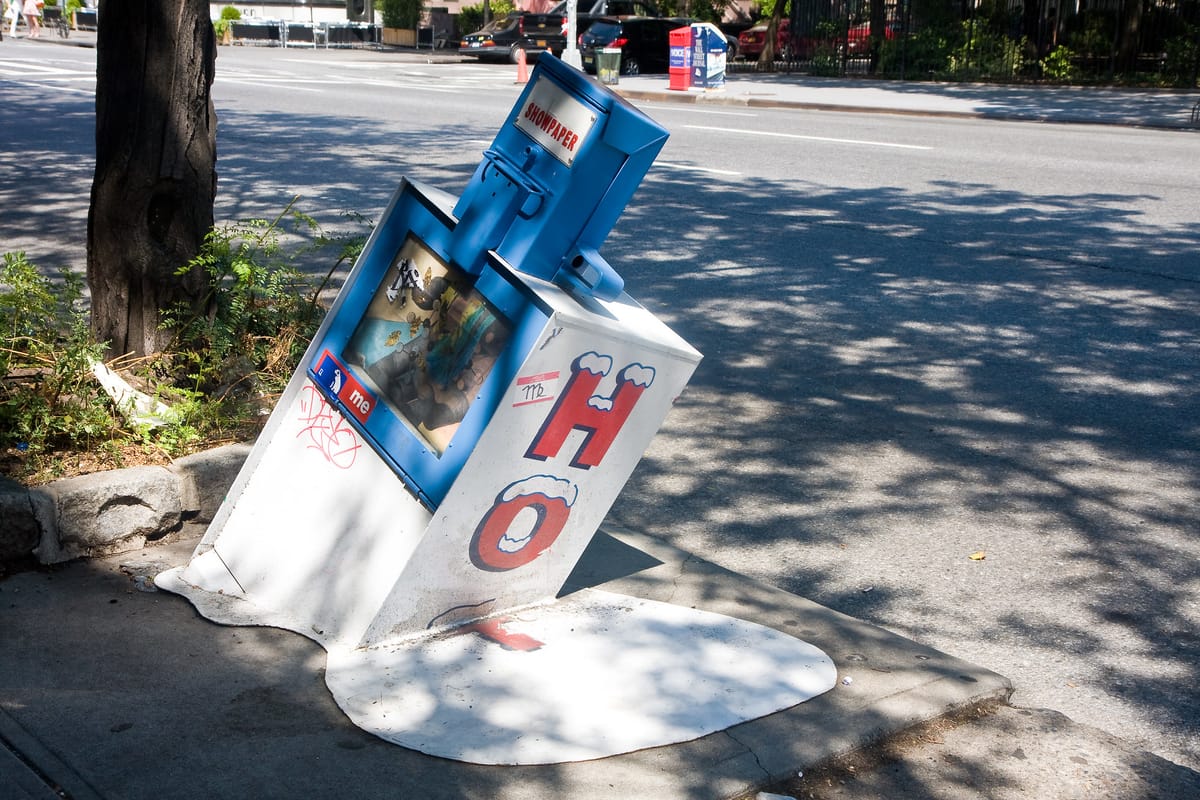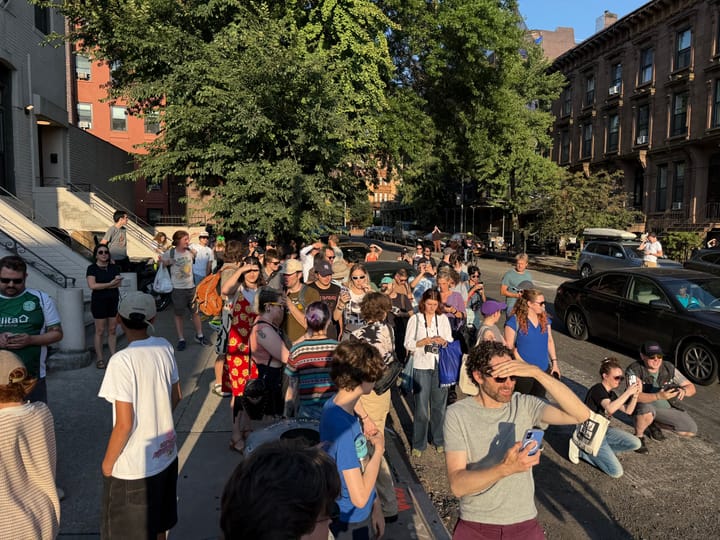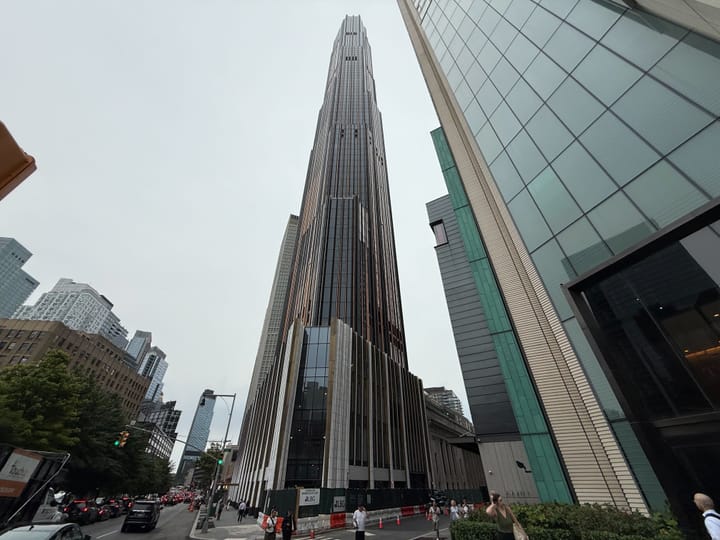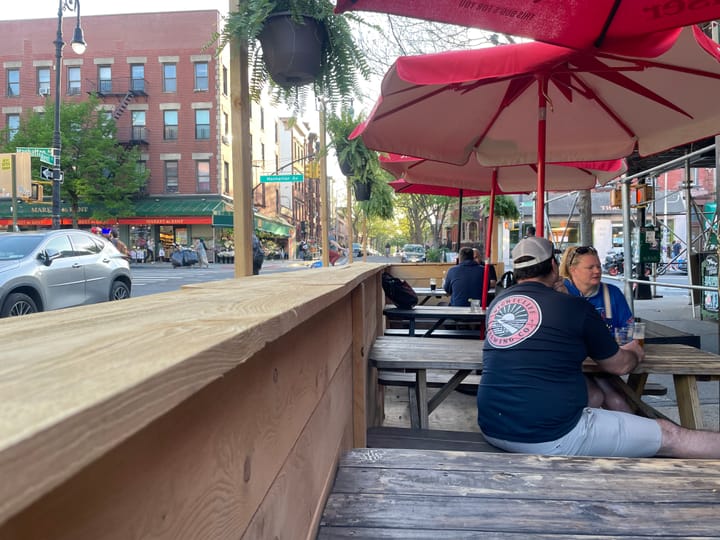Our growing summer scourge: heat cancellations
When does it officially become too hot to safely hang out outside, and what can we do to keep each other safe?

It’s no secret that among its many other downsides, climate change has done a number on New York City summers. We’ve got those near-daily subtropical storms, and levels of heat and humidity that regularly cross over from “it’s sweaty out there” to “it’s inhospitable to human life out there.”
2024 is already New York’s hottest year on record to date, beating previous records set in 2021 and 2023. Between 2000 and 2004, New York State experienced an average of less than one heat wave per year — a heat wave in this case means three consecutive days above 90 degrees. That number is rising, and by 2050 we’re on track to experience up to eight heat waves annually.
And with this extreme heat comes an ever-more-frequent seasonal letdown: events getting canceled or postponed, not for some kind of imminent storm, but in response to unending, sweltering heat.
During the heatwave that slammed the city earlier this month, even sitting on the grass watching a movie became untenable.
“There was a shift on Tuesday the 16th where we saw a couple days in advance that it was going to be way too hot and humid out, so we just had to cancel it,” said Harrison Greene, who works for a company that produces outdoor movies. (That kind of weather isn’t just a hazard for humans; it’s easy for equipment like projectors or laptops to overheat and stop working in these kinds of conditions, as well, he noted.)
It was hardly an anomaly — the July heatwave led to a rush of cancellations and closures including the Naval Cemetery Landscape (which noted the lack of cooling center on site); outdoor yoga at both Brooklyn Bridge Park and the Morris-Jumel Mansion; multiple tours on the High Line; Mekong NYC’s family day event in the Bronx; and a Jonathan Toubin show at the Turk’s Inn rooftop in Bushwick to name just a few. Last summer, the Harlem Festival of Culture had to be canceled altogether (ticket holders were offered refunds) due to excessive heat.
To be clear, this all sucks, but is as it should be — no one should be putting their health or life at risk to attend even the sickest of events. As we all adjust to our hellish new climate reality, though, how do we know when it’s officially so hot that we should seek shelter and throw in the towel?
When is it officially considered “too hot” out?
In addition to just listening to your own body, there are also some official numbers to go off of here. The National Weather Service issues a heat advisory in New York City when the heat index is set to hit at least 100 degrees during the daytime, or when nighttime “lows” are on track to remain above 80 degrees, per the 311 website. (The Health Department didn’t respond to a request for comment.)
Heat index is essentially the same thing as “RealFeel” or “feels like” temperature, which you can find in most weather apps; the National Weather service also has a handy chart of the heat index and relative danger level at different temperature and humidity levels.
How to keep yourself and other safe
The health department has a good rundown of extreme heat advice here and general cooling tips here, (did you know there are times when the weather is considered “too hot for a fan”? We live in hell!). But as far as events specifically, the official guidance from the city is to provide an area with air conditioning or shade, “where participants can take a break from the heat to cool off,” and to offer people water, as well. If none of this is an option, “it may be advisable to consider canceling your event.”
As Greene put it, “There’s a lot of common sense going on here” when it comes to managing events in serious heat. Full-on heat cancellations are still rare, and on days where it’s hot but not likely to be dangerous, it’s still a good idea to take measures to make things more comfortable for yourself and other people at an event.
“They’ll send us out with water and ice and fresh fruit, and rent a minivan so we can take turns sitting and cooling down,” Greene said.
In more official channels, this is all becoming more and more of a going concern. State legislators passed a bill this year that would allow schools in New York State to cancel class on extreme heat days but it’s waiting for Governor Kathy Hochul’s signature, and City Councilmember Lincoln Restler just introduced a bill that would require landlords to provide air conditioning for tenants in the summer, the same way they’re required to provide heat in the winter.
On the national level, President Biden just announced new regulations designed to protect workers from extreme heat. And if you’re struggling with the heat in your current work situation, OSHA just released a major proposed update its existing workplace safety rules, which include basics like requiring water, cooling areas and rest breaks in work situations where the temperature is above 80 degrees (you can find a full rundown here). If your employer isn’t complying, you can file an OSHA complaint here.
But as far as you, an individual who just wants to figure out if it’s safe to go do or plan something outdoors, what does this all mean? It’s all pretty straightforward, and again, involves a lot of common sense:
- Keep an eye on the projected heat index; if it’s getting to 100 or above, it may be time to cancel.
- Make plans that involve the option for shade and/or air conditioning, plus plenty of water.
- And if it seems like you’re setting yourself, your friends, or other guests up for something grueling, it’s time to reconsider. The outside will still be there waiting for you when things cool back down.




Comments ()